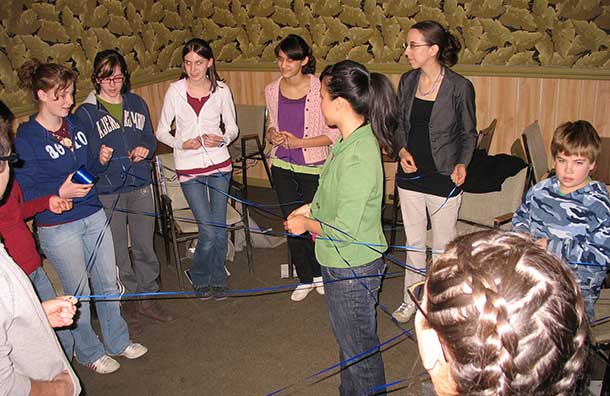
TV and Movies to Real Life Girl Power
THUNDER BAY – Women are gaining on television and movies with growing ‘Super Power’ roles. Female characters portrayed in two popular TV shows not only are competing for powerful ratings (and advertising dollars) among the networks, but also are exemplifying how women are gaining equality in superhero fiction.
In Thunder Bay, on a more down to earth level, the Regional Multicultural Youth Council offer “Girl Power” for teenage women – a program that empowers those young people toward making better and stronger choices for themselves.
Rebecca Borah, a University of Cincinnati associate professor of English and comparative literature, will present examples from two popular TV programs, at the 46th annual conference of the College English Association, which takes place March 26-28, in Indianapolis.
“In a post-‘Buffy the Vampire Slayer’ television world, females are finally becoming major characters to their male counterparts,” says Borah. Her presentation will cite examples from NBC’s “Grimm” TV series as well as ABC’s “Marvel Agents of S.H.I.E.L.D.”
“It’s hard to get away from the comic book images of female superheroes – the World War II pinup-style, curvaceous characters – and how often they were more the seductive, romantic interest of the powerful male superhero,” says Borah. “Rather than just being the voluptuous, vulnerable love interests of the main characters in these newer TV shows, there are independent, intelligent and intuitive female characters who can kick some antagonist butt on the same level as their male counterparts.”
Borah says “Grimm’s” Juliette and the “Marvel Agents of S.H.I.E.L.D.’s” Agent May are two leading examples of how women are gaining ground on the leading men in the areas of smarts and strength, as well as an appropriate dress code for work. “They’re still not padding around in flats, but just looking at the footwear alone, they’re wearing something much more practical than the teetering high heels of the females portrayed in comic books,” says Borah. “Furthermore, Agent May (“Marvel Agents of S.H.I.E.L.D.”) is one of the few people, male or female, who can reportedly best the Black Widow in hand-to-hand combat.
“May is the warrior, Skye is the newbie with the mysterious past – now with superpowers – and Agent Jemma Simmons is their biology tech specialist. All of them have specialized areas that complement the leading male, Director Phil Coulson, and the other male agents.”
As for “Grimm,” which started its first season with a predominantly male-centric cast, Borah says females with their own talents became integral members of the show with the second season.
Among the strong females on the show are leading character Nick’s girlfriend, Juliette, and his mother, über Grimm Kelly Burkhart, who appears in the storyline after 18 years of hiding. “Juliette is especially exciting now that she has become a Hexenbiest and fought off a major villain on her own.”
Borah says this emerging trend of strong female characters is “a long time coming” in recognizing that there has always been a large and loyal female comic book fan base, yet the genre was previously a very masculine world. “There’s a real hunger among these fans to see female characters treated as equals, to show that women can be heroic too. Buffy kind of blazed the trail in the TV culture,” says Borah.
Borah adds that outside the superhero genre, there have long been strong heroines in fiction who have embraced both passion and integrity, such as writer Charlotte Brontë’s Jane Eyre, or Jane Austen’s “Pride and Prejudice” character, Elizabeth Bennett.
The theme of the CEA conference focuses on imagination, and how professionals can encourage their institutions, colleagues, students and themselves to use imagination for creative output. Borah’s presentation is part of a panel exploring fantasies and women in TV dramas.


